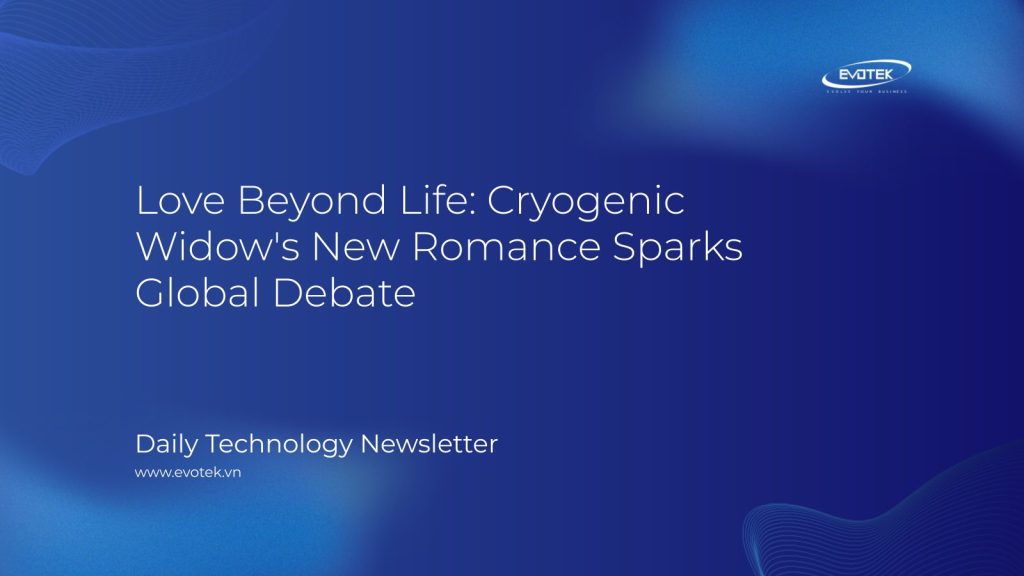In a story that blurs the lines between science fiction and poignant reality, Gui Junmin, a man who made the extraordinary decision to cryogenically preserve his wife, Zhan Wenlian, is now facing intense public scrutiny. Years after committing his late spouse’s body to futuristic science in the hopes of a future cure for her lung cancer, Junmin has found new love, igniting a heated debate about commitment, grief, and the ethical frontiers of life and death.
The Unfolding Saga of Gui Junmin and Zhan Wenlian
The year was 2017 when Gui Junmin, then 57, chose a path less traveled for his wife, Zhan Wenlian, who had been diagnosed with terminal lung cancer. His profound grief and a glimmer of hope led him to the Shandong Yinfeng Life Science Research Institute, an institution dedicated to experimental human cryopreservation. Wenlian became China’s first-ever cryopreserved individual, her body meticulously stored in a -196℃ (-320°F) unit known as ‘Container No. 1’.
This groundbreaking decision was born from Junmin’s self-described nature as a “dreamer” and “fantasist,” clinging to the possibility of a future where medical advancements could revive and cure his beloved wife. The Institute maintains that Wenlian’s cellular structure remains stable, though she has been clinically declared dead, her existence now suspended between two worlds.
A Search for Companionship Amidst Solitude
For two years following his wife’s cryopreservation, Junmin remained single, grappling with immense loss. However, fate took a turn when health complications, including a severe gout attack that left him immobile and isolated, underscored the stark realities of living alone. Relatives, concerned for his well-being, eventually discovered him after breaking down his door.
“If something really happens when you’re alone, there’s nothing that that person can do,” Junmin reportedly stated. This experience propelled him to seek companionship. Through an acquaintance, he met Wang Chun-sha, a woman he described as possessing a kind and thoughtful personality, much like his late wife. Since 2020, Junmin and Chun-sha have been living together, building a new life.
Navigating Emotional Complexities: A Divided Heart?
Despite entering a new relationship, Junmin insists his commitment to Zhan Wenlian remains unwavering. He continues to keep photos of his cryopreserved wife displayed prominently in his home. “She can never replace my wife,” he explained to news outlets, adding, “I can’t just forget the past, but I still have to live my life.” This complex emotional landscape paints a picture of a man torn between past vows and present needs, striving to reconcile his unique circumstances.
Public Outcry: “Emotional Polygamy”?
The revelation of Junmin’s new relationship, while his wife awaits a potential future revival, has ignited a firestorm across Chinese social media platforms. Critics have been quick to lambast his actions, questioning the sincerity of his devotion and the ethics of his new bond. Online comments poured in, accusing him of “emotional polygamy” and selfishness.
“Now he is holding one woman in his arms while hoping to reunite with another in 30 years. What is this: emotional polygamy?” one user queried. Another remarked, “If that is the case, why start a new relationship? If you do, why not treat your new partner with genuine care? This kind of so-called devotion is not noble; it is selfish.” The debate highlights society’s struggle to define love and commitment in the face of unprecedented scientific possibilities.
The Enduring Ethical and Emotional Quandary
Gui Junmin’s story transcends a mere personal narrative; it’s a profound exploration of human emotions, the boundaries of modern science, and the societal judgments that arise when personal choices challenge conventional norms. As Zhan Wenlian remains in cryostasis, her husband’s life has moved forward, presenting a poignant ethical and emotional quandary that continues to captivate and divide public opinion.

 日本語
日本語 한국어
한국어 Tiếng Việt
Tiếng Việt 简体中文
简体中文